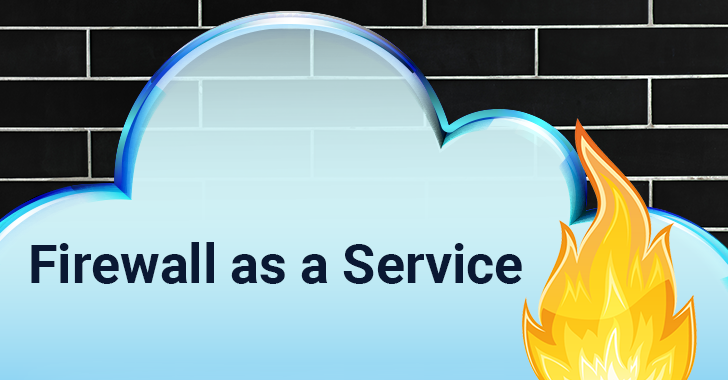Top 10 Reasons To Pick Cloud-delivered Firewall-as-a-Service For Your Network
Unsurprisingly, a recent poll by Cisco found that 59% of respondents placed monitoring and handling of security incidents as their biggest concern.
When it comes to appliance based security, key challenges we are faced with are:
- Appliance sprawl — placing and managing appliances in every branch office within an extended perimeter is a massive task
- Appliance avoidance — allowing the end-users to directly access the Internet and SaaS applications introduces security risks and vulnerabilities into the network
- Forced appliance upgrades — appliance based Firewalls often require forced or unplanned upgrades due to increased traffic volume and growing SSL traffic share
- Mobile, remote and cloud access — allowing mobile and remote users access to business applications results in loss of visibility and control
Out of the need to protect the increasingly fuzzy perimeter, comes a new approach to cyber security — Firewall as a Service or FWaaS, the technology that delivers firewall and other network security capabilities as a cloud service, completely eliminating the appliance form factor. Gartner has classified FWaaS in their latest hype cycle report as “on the rise” technology, understanding that a more flexible approach to protecting our networks is urgently needed. Let’s look at 10 reasons why FWaaS is rapidly gaining popularity within the enterprise space:
#1 Supporting a mobile workforce
We are in the midst of a revolution in the way we work. With advances in networking technology, remote working is now becoming attractive to organizations of all sizes. A 2015 U.S. Bureau of Labor Statistics review of working practices finds that 38% of employees did some or all of their work from home. Enterprises are accommodating this change by allowing mobile access, SaaS, and cloud-based access to company resources and applications.
This situation has smashed the concept of an enterprise perimeter wide open. Perimeter security technologies can no longer offer the flexibility and scope needed in a modern enterprise. This is where FWaaS steps in.
Common practice to securing mobile users is to backhaul traffic through the company datacenter. Essentially all traffic is pull back to an on-premise firewall and from there put out onto the Internet. When all users need to connect to central location to access cloud applications, performance and latency issues arise.
Another way to secure mobile and remote traffic is by and securing internet traffic locally, causing appliance sprawl.
FWaaS eliminates the issues above by connecting mobile users through a global SLA-backed cloud network that connects all traffic, users and resources, including access to cloud and SaaS applications by mobile and remote users.
#2 Single global firewall
FwaaS truly eliminates the appliance form factor. Firewall as a Service makes firewall services available in all branch locations without the need to install additional hardware. The result? A single, logical global firewall with a single application-aware security policy for your entire organization.
#3 Avoiding appliance sprawl
The lifecycle of handling, maintenance, configuration, policies, upgrades, which all requires immense effort and adds failure points to a network, are eliminated with FWaaS. By taking your firewall function to the Cloud, FWaaS eliminates the need for appliance build-up, so you don’t need to worry capacity planning or maintenance issues. FwaaS is fast to deploy, and is very flexible – you can grow at a click of a button, without having to invest in expensive appliance upgrades.
#4 Performance
One of the biggest issues with appliance-based security is that the physical devices are limited by performance. When the physical device faces increased load from higher traffic volume or additional processing is required to decrypt an increased volume of SSL traffic, the appliance often has to be upgraded to meet growing capacity requirements.
Due to budget constraints, the limitations of physical appliances often force you to pick and choose between security vs. cost efficiency. As a result, remote branch security often suffers. Using FWaaS you no longer need complex sizing processes to determine the appliance capacity. Firewall as a Service allows you to grow your business organically with unrestricted scalability.
#5 Improved end-user experience
Both direct internet access (appliance avoidance) and appliance sprawl make the lifecycle of perimeter security management onerous. Options like MPLS/VPN create poor end-user experience since the traffic routed over the public internet can suffer from high latency and packet drop. Using an MPLS network and routing the traffic comes with high costs. FWaaS avoids all of these problems and builds a user-friendly, yet secure, environment.
#6 Full visibility
Today’s dynamic networks require a different approach. Many companies are dependent on expensive MPLS based WAN networks to connect remote branches. Backhauling traffic through central location results in “trombone effect, when remote users try to access SaaS and cloud-based business applications. This setup results in lack of control and visibility into the network.
By moving the firewall itself into the cloud, enterprises can benefit from centralized management and unique security powered by full visibility into the entire network.
#7 Unified security policy
With FwaaS you can uniformly apply the security policy across all traffic, for all locations, and or all users, including mobile, remote and fixed users. Firewall as a Service supports the centralized management of security policy, enabling network-wide policy definition and enforcement.
#8 Keeping it simple
Maintenance and ongoing configuration management of appliances is a time-consuming and resource-intensive affair. In contrast, one of main advantages of FWaaS is its an uncomplicated architecture. It is fast to deploy and easy to maintain, offering a better network security option to overburdened IT teams. Instead of wasting time on sizing, deploying, patching, upgrading, and configuring numerous edge devices, work can shift to delivering true security value through early detection and fast mitigation of risk. Requirement or prompt software upgrades is removed. Capacity planning and deployment are fast and easy to maintain.
#9 Flexibility and scalability
One of the most important and timely features of an FWaaS is the scalability of the service. FWaaS can grow with a click of a button. Unlike appliance-based firewalls that require replacement or upgrade of a physical device when bandwidth exceeds firewall throughput, FWaaS is designed to effortlessly scale as bandwidth increases.
#10 Comprehensive Security
Last, but not least, the security offered by a Firewall as a Service is a better fit for a modern extended enterprise network. FWaaS offers a centralized policy service with greater visibility, unique security features, and shared threat intelligence. With FWaaS, the entire organization is connected to a single, logical global firewall with a unified application-aware security policy. It aggregates all enterprise traffic into the cloud and then enforces comprehensive security policy on all traffic and users, both fixed location as well as mobile.
To sum up, FWaaS is a scalable and manageable way of protecting your network. A global policy based service, that auto-scales to any traffic load is a prerequisite for this new era of distributed business working. FWaaS offers an enterprise a simple, flexible, and secure method of protecting their resources, whilst ensuring that overworked IT teams are not overburdened with complicated appliance care.
For more information contact us at: info@cherubas.com, (407) 416-7955 or @CyberCherub










